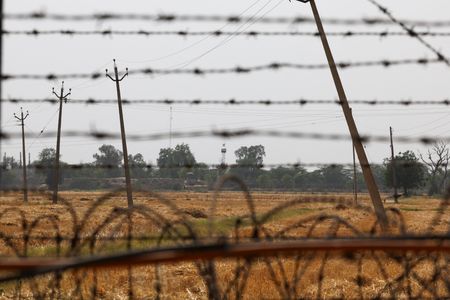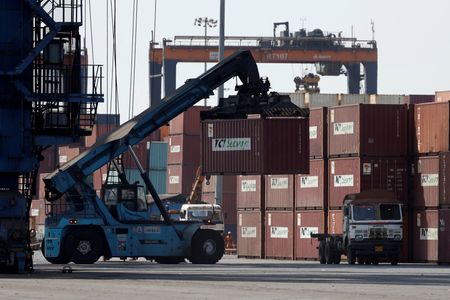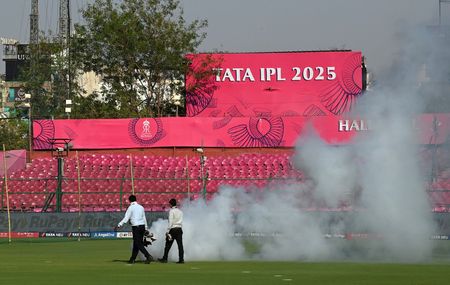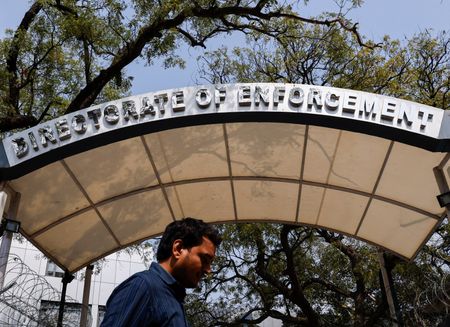By Asif Shahzad
ISLAMABAD (Reuters) -Pakistan’s defence minister said on Monday a military incursion by neighbouring India was imminent in the aftermath of a deadly militant attack on tourists in Kashmir last week, as tensions rise between the two nuclear-armed nations.
The attack killed 26 people and triggered outrage in Hindu-majority India, along with calls for action against Muslim-majority Pakistan. India accuses Pakistan of backing militancy in Kashmir, a region both claim and have fought two wars over.
“We have reinforced our forces because it is something which is imminent now. So in that situation some strategic decisions have to be taken, so those decisions have been taken,” Defence Minister Khawaja Muhammad Asif told Reuters in an interview at his office in Islamabad.
Asif said India’s rhetoric was ramping up and that Pakistan’s military had briefed the government on the possibility of an Indian attack. He did not go into further details on his reasons for thinking an incursion was imminent.
India’s foreign and defence ministries did not immediately respond to requests for comment.
After the Kashmir attack, India said two suspected militants were Pakistani. Islamabad has denied any role and called for a neutral investigation.
Indian Prime Minister Narendra Modi has vowed to pursue and punish the attackers.
Pakistan was on high alert but would only use its nuclear weapons if “there is a direct threat to our existence,” said Asif, a veteran politician and outspoken member of the ruling Pakistan Muslim League-Nawaz party, which has historically pursued peace talks with India.
‘ACT OF WAR’
The minister added that Islamabad had approached friendly countries, including Gulf states and China, and also briefed Britain, the United States and others on the situation.
“Some of our friends in the Arabian Gulf have talked to both sides,” Asif said, without naming the countries.
China said on Monday it hoped for restraint and welcomed all measures to cool down the situation. Asif said the United States was thus far “staying away” from intervening in the matter.
U.S. President Donald Trump said last week India and Pakistan would figure out relations between themselves, but the State Department later said Washington was in touch with both sides, urging them to work towards a “responsible solution”.
Washington has previously helped calm tensions between the two countries, which both gained independence in 1947 when a retreating British colonial administration partitioned the subcontinent into two states.
Delhi and Islamabad have taken a raft of measures against each other since the Kashmir attack. India has suspended the Indus Waters Treaty – an important river-sharing pact. Pakistan has closed its airspace to Indian airlines.
Asif said it was an “act of war” to deprive vulnerable areas of water, and that the treaty, which has weathered past conflicts, was backed by international guarantors.
“We have already gone to relevant quarters as far this treaty is concerned,” he said, calling on the international community and the World Bank to protect the pact.
New Delhi has also accused Islamabad of backing the Islamist militants who had carried out the 2008 Mumbai attacks, which killed more than 166 people, including foreigners. Pakistan denies the accusations.
(Additional reporting by Shivam Patel in New Delhi; Writing by Gibran Peshimam; Editing by Andrew Heavens)








